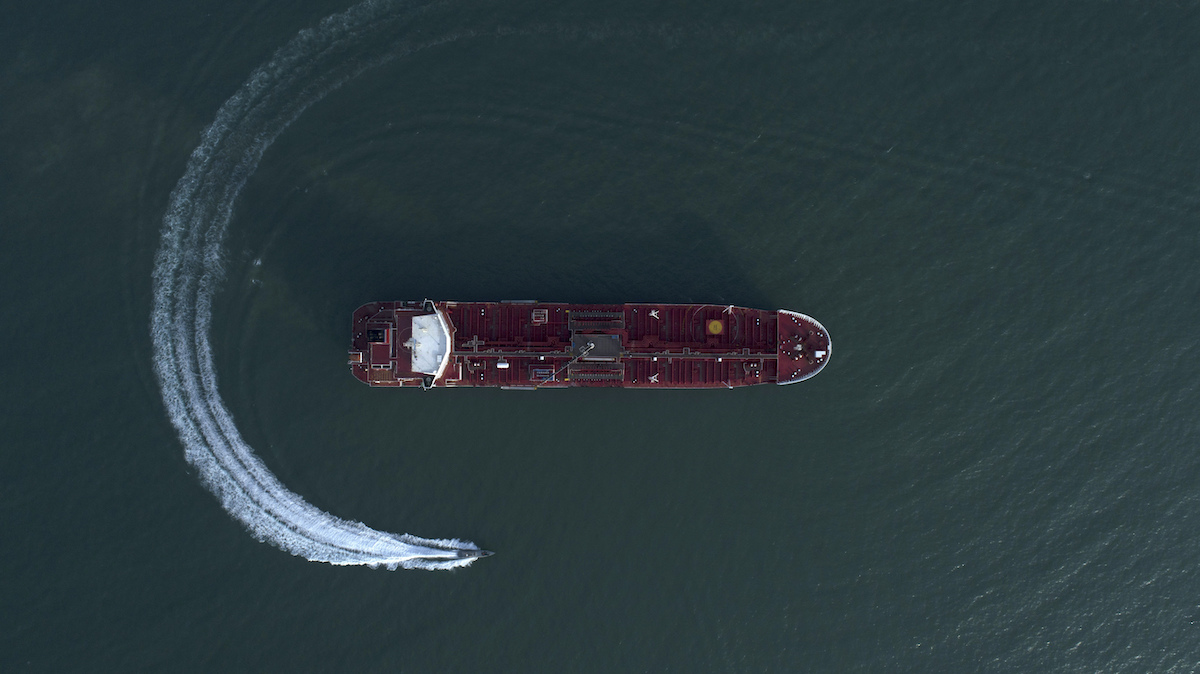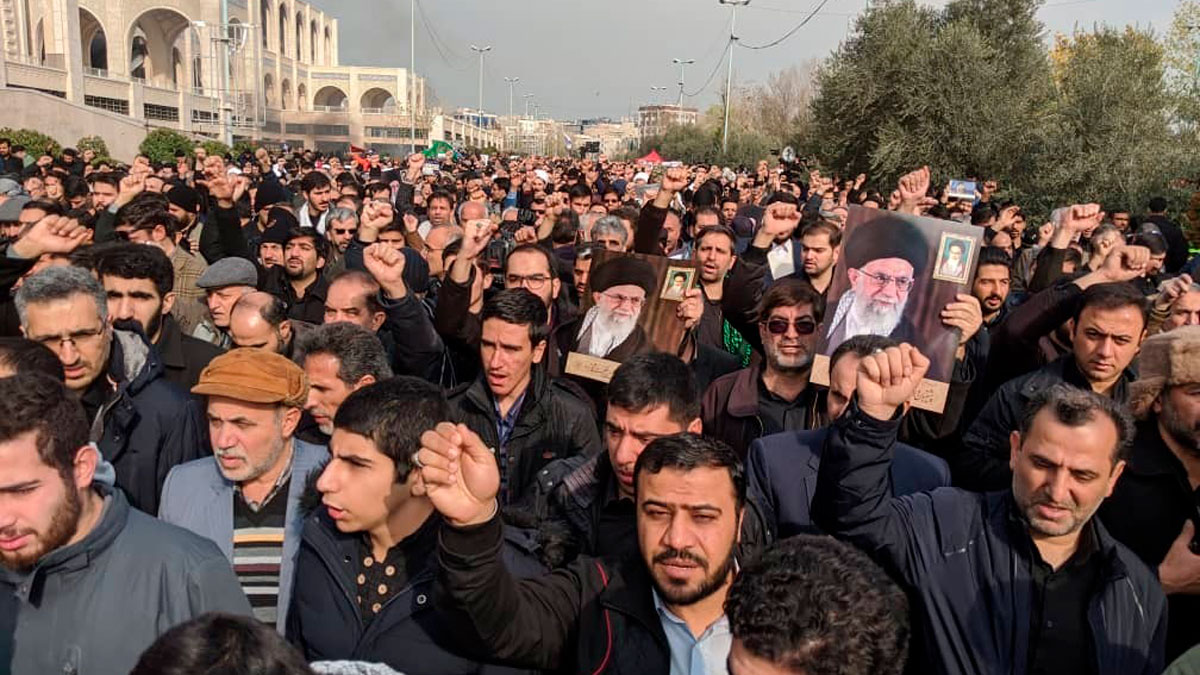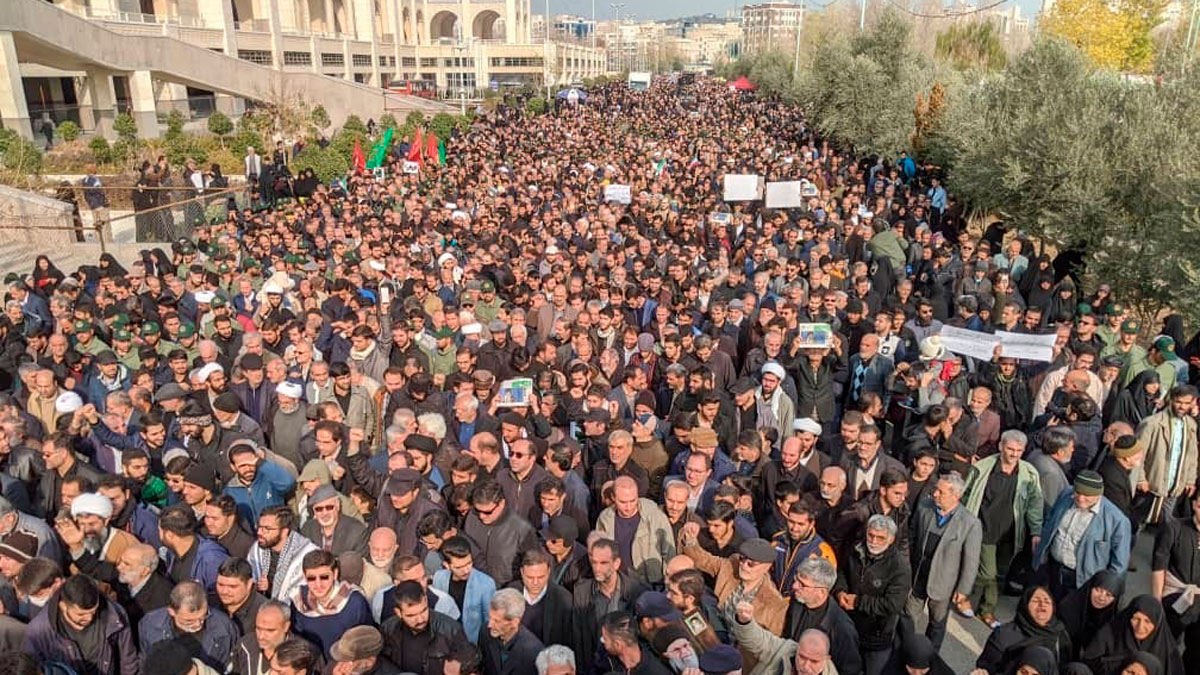What to Know
- Following the targeted killing of Gen. Qassem Soleimani, the head of Iran’s elite Quds Force, the NYPD has taken immediate steps to protect key locations throughout the city
- The NYPD said that the increase in security is taken place although there is no credible threat to NYC
- New Yorkers are also urged to remain vigilant
Following the targeted killing of Gen. Qassem Soleimani, the head of Iran’s elite Quds Force, the NYPD has taken immediate steps to protect key locations throughout the city although there is no specific or credible threat to the Big Apple.
During a Friday morning press conference, NYPD Commissioner Dermot Shea reiterated that there are no credible threats to the city. However, the NYPD is monitoring the developments abroad and immediately taking key steps to ensure the safety of New Yorkers.
Shea said that there will be "heightened vigilance in terms of uniformed officers -- many with long guns -- at sensitive areas, critical structures and continuing community dialogue with our community leaders."
Deputy Commissioner of Intelligence and Counterterrorism of the NYPD John Miller said that many of the locations deemed sensitive areas already see a heightened level of police presence regularly.
Shea also urged all New Yorkers to remain vigilant and to call 888-NYC-SAFE if anyone sees anything that is out of the ordinary.
In a Friday morning tweet, the NYPD also said the security measures comes "based on recent world events" and urged the public to remain vigilant.
"The fact is that we are dealing this morning with a reality that we have not faced previously," Mayor Bill de Blasio said during the Friday morning press conference. "And it is very, very important for everyone to understand that and to understand that in these changing circumstances that the City of New York and the NYPD are acting immediately to ensure that New Yorkers are safe."
He went on to say that New Yorkers should understand that "we are now potentially facing a threat that's different and greater than anything we have faced previously."
"Over the last 20 years, this city more than any other has suffered as a result of terrorism," he said. "But the terrorism inflicted upon us came from non-state actors."
De Blasio went on to say that the reality is different now now that the United States and Iran are in an assumed "de facto" state of war.
"We have to recognize that this creates a whole series of dangerous possibilities for our city," de Blasio said. "I am not saying this to be alarmist. I'm not saying this because I assume any outcome. I am saying this because New Yorkers deserve to know."
In a separate tweet, Mayor Bill de Blasio also said Thursday night that the NYPD has taken immediate steps to protect key New York City locations.
"We will have to be vigilant against this threat for a long time to come," the tweet reads in part.
New York Gov. Andrew Cuomo also announced the bolstering of security at critical points amid the mounting tensions in the Middle East.
"Recent international events are understandably causing some anxiety, and while New York has not received any direct threats, out of an abundance of caution I am directing National Guard and state agencies to increase security and step up patrols at our most critical facilities," Cuomo said in a statement.
Among the heightened security measures, New York State Police will prepare a counter-terrorism briefing that will be issued to all law enforcement agencies statewide through the State Intelligence Center, according to the governor's office. The briefing will include an update on the situation, the implications for New York State, and include indicators of suspicious activity. The briefing will be updated as events warrant.
The Department of Public Service has been in contact with all electric, natural gas, telephone and water utilities in New York State, and it has directed the companies to increase awareness and vigilance regarding cyber and physical security, Cuomo said.
Additionally, the New York Power Authority is conducting checks and patrols on all utilities, and the New York State Office of Information Technology Services is performing checks on all cybersecurity details.
The Department of Homeland Security and Emergency Services will also be reviewing all vulnerability assessments and contacting appropriate agencies and businesses as needed, according to Cuomo, who also added that the MTA has also taken additional steps to enhance security following the international events.
The governor also announced he will deploy the National Guard to New York City area airports.
Iran has vowed “harsh retaliation” for a U.S. airstrike near Baghdad's airport that killed Iran's top general and the architect of its interventions across the Middle East, as tensions soared in the wake of the targeted killing.
The killing of Gen. Qasem Soleimani, the head of Iran's elite Quds Force, marks a major escalation in the standoff between Washington and Iran, which has careened from one crisis to another since President Donald Trump withdrew from the 2015 nuclear deal and imposed crippling sanctions.
The United States urged its U.S. citizens to leave Iraq "immediately," citing "heightened tensions." The State Department said the embassy in Baghdad, which was attacked by Iran-backed militiamen and other protesters earlier this week, is closed and all consular services have been suspended.
Around 5,200 American troops are based in Iraq, where they mainly train Iraqi forces and help to combat Islamic State militants.
Iran’s Supreme Leader Ayatollah Ali Khamenei warned that a "harsh retaliation is waiting" for the U.S. after the airstrike, calling Soleimani the "international face of resistance." Khamenei declared three days of public mourning for the general’s death and appointed Soleimani's deputy, Maj. Gen. Esmail Ghaani as the new commander of the Revolutionary Guard's Quds Force.
Iranian President Hassan Rouhani called the killing a “heinous crime" and vowed his country would “take revenge.”
Thousands of worshippers in the Iranian capital Tehran took to streets after Friday Muslim prayers to condemn the killing, chanting “Death to deceitful America.”
The targeted strike, and any retaliation by Iran, could ignite a conflict that engulfs the whole region, endangering U.S. troops in Iraq, Syria and beyond. Over the last two decades, Soleimani had assembled a network of heavily armed allies stretching all the way to southern Lebanon, on Israel's doorstep.
However, the attack may act as a deterrent for Iran and its allies to delay or restrain any potential response. Oil prices surged on news of the airstrike and markets were mixed.
The killing promised to strain relations with Iraq's government, which is allied with both Washington and Tehran and has been deeply worried about becoming a battleground in their rivalry. Iraqi politicians close to Iran called for the country to order U.S. forces out of the country.
The Defense Department said it killed the 62-year-old Soleimani because he “was actively developing plans to attack American diplomats and service members in Iraq and throughout the region." It also accused Soleimani of approving the orchestrated violent protests at the U.S. Embassy in Baghdad.
The strike, on an access road near Baghdad’s airport, was carried out by a U.S. drone, according to a U.S. official.




